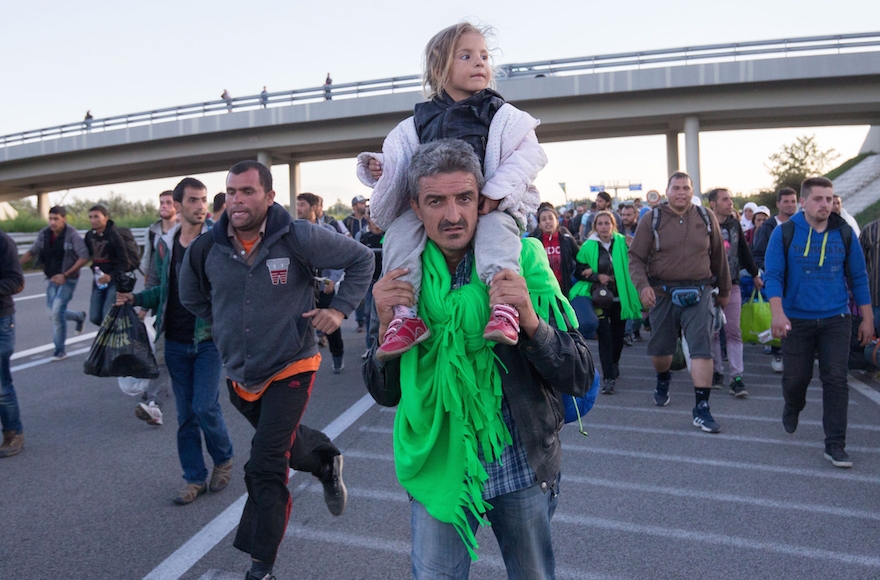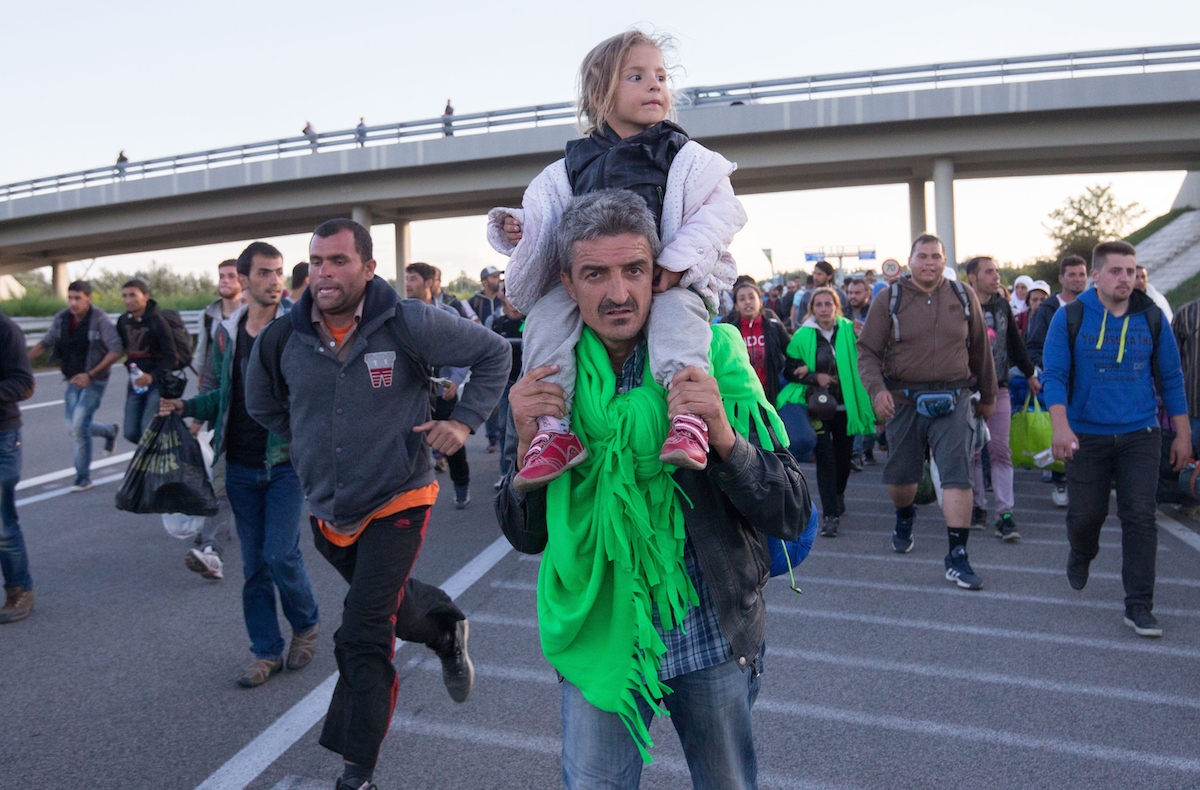
Migrants walking along a motorway near the southern Hungarian village of Roszke, Sept. 7, 2015. (Matt Cardy/Getty Images)
(JTA) — Hungarian Jews have collected about $5,000 and half a ton of food and nonperishables for refugees from the Middle East.
In the collection drive on Friday, the Mazsihisz umbrella group of Hungarian Jewish communities and its youth department gathered food and nonperishables at three depots in Budapest, including a synagogue and Jewish community center.
“There are currently between 100 and 150 Hungarian Jews that I know of involved in the relief effort,” said Zoltan Radnoti, chairman of the Mazsihisz rabbinical council.
Hungary has been one of the main entry points into the European Union by tens of thousands of migrants from the Middle East, including many refugees from Syria and Iraq, where sectarian violence erupted and has been ongoing since 2011.
Last month, as international media outlets produced jarring reports about thousands of deaths by people who perished at sea or on land en route to Europe, thousands of migrants moved into Hungary – a European Union member state – from neighboring Serbia, which is not part of the European Union. Many crossed into Hungary to continue to richer EU countries north of it, and Hungarian authorities in some instances helped the migrants cross into Austria.
Some 340,000 migrants from the Middle East have crossed into the European Union this year, according to United Nations figures.
Evoking the lessons of the Holocaust, several prominent European rabbis, including the chief rabbi of France, Haim Korsia, and the former chief rabbi of Britain, Jonathan Sacks, have urged European governments to treat the migrants generously and find a solution to their plight.
“As Eastern European Jews, we carry the knowledge of how it feels to flee our homes,” Radnoti told JTA.
JTA has documented Jewish history in real-time for over a century. Keep our journalism strong by joining us in supporting independent, award-winning reporting.






